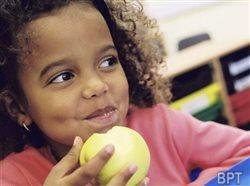Afterschool nutrition and activities improve educational success
(BPT) - Millions of students are heading back to school with high hopes for a great school year. When it comes to educational success, most parents and caregivers focus on what happens in the classroom, but what takes place after school is equally important to academic success.
According to the U.S. Department of Agriculture, nearly 50 million Americans – including more than 16 million children and teens younger than 18 – live with food insecurity, meaning they struggle to feed their families. Many of these children receive free or reduced-cost meals during the school day, but are at risk of hunger when school is out.
While healthy activities and proper nutrition benefit physical health, they also impact mental health and children’s success in school. A nourished body means a nourished mind, and several studies show children who don’t get the proper nutrition can experience difficulties focusing, socializing and learning in the classroom.
“It is imperative that children have access to healthy nutrition options, and are introduced to physical fitness routines at an early age,” says Jackie Thurnau, early childhood and afterschool specialist, YMCA of the USA. “A few simple strategies can help give kids the nutrition they need while encouraging healthy, active play afterschool. Y afterschool programs, for example, promote healthy eating, a love for learning, and social and emotional development while complementing lessons learned during the school day.”
According to Thurnau, the Y is offering an Afterschool Meal Program in partnership with the Walmart Foundation throughout the 2013-14 school year to serve 3.5 million meals and snacks. At 1,400 sites nationwide, school-age children enrolled in the program will receive nutritious food – along with learning enrichment activities – to be healthy and succeed in school. In addition, Y Afterschool Programs are implementing healthy eating and physical activity standards in early learning and afterschool programs. Some of these standards include serving fruits and vegetables at every meal, setting limits on screen time and devoting time for physical activity.
The Y also offers five tips for busy parents and caregivers to provide their kids with brain-boosting healthy snacks and fun physical activity after the school day is over:
1: Offer a variety of foods
It’s important for parents to encourage children to eat a wide variety of nutritious foods that support physical and mental wellness. Whole grains, fresh fruits and vegetables should be at the heart of snack times. Save time by cutting veggies for snacking every Sunday and putting portions into resealable bags or containers; kids can just grab, snack and go whenever they’d like.
2: Be creative when introducing new foods
While some kids are adventurous eaters, many are resistant to trying new things. Never force children to eat a particular food. If you face resistance, ask nicely if they’ll taste one bite. If you still have troubles, include children in the purchasing and preparation of the food. Be creative in how the food is offered – a little dip can make eating fun. Try low-fat dressing, fat-free yogurt for fruits, vegetables, crackers and more.
3: Limit sweet drinks
When it comes to what children drink, sweet soft drinks and juices are high in calories and sugar and are typically low in nutrition. Water is the best way to hydrate, but who says water can’t be fun to drink, too? Liven up your kids’ drinks with fresh sliced oranges, lemons or limes for a colorful splash of healthy flavor. Remember, dehydration can impair memory and make it difficult to pay attention, so make sure your student drinks H2O to stay focused. [Source: Psychology Today]
4: Limit screen time
While a little TV or time on the computer can be enjoyable for kids (and a welcome break for adults), we all want our kids to appreciate being active. Start the school year with clear rules about how much screen time is allowed each day. For example, if you allow one hour of screen time after school is out, your child knows that she has 60 minutes to divide between playing online and watching her favorite TV show before bed.
5: Encourage physical play
It’s important for parents to encourage and participate in active play. Whether it’s joining an organized youth team or simply hosting play groups at a local park for a few rounds of tag, parents need to make sure kids understand physical activity is a priority. Don’t forget to lead by example; take walks with your children and get outdoors and help them explore Mother Nature.
For more information on the Y afterschool activities and more healthy tips, visit www.ymca.net.























